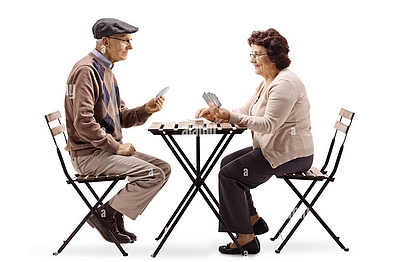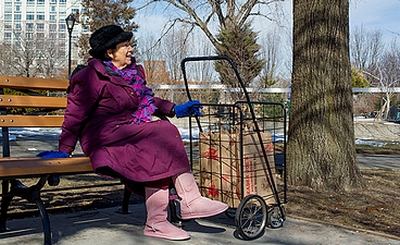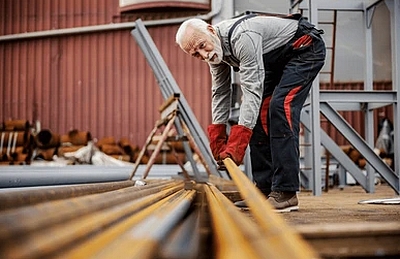WEDNESDAY, MARCH 4, 2026


KEY NEWS FOR YOU TO USE
Study finds
vegetarians over 80
less likely to reach 100

In very old age, staying strong and maintaining muscle matters more than long-term disease prevention.
Read more
****
There aren't enough
geriatricians
—how older adults
can still get the right care

By Jerry Gurwitz
You can use a few simple strategies that geriatricians rely on to have more productive conversations with your or your family member's doctor.
How to stop thinking about RMDs like it’s 2017, and why you should take advantage of the ‘golden years’ for Roth conversions.
Many immigrants with legal status have historically been eligible for Medicare, Medicaid, and tax credits for Affordable Care Act (ACA) insurance plans. This changed in July 2025
No, it’s not about holding a “Roman chair” pose, nor is it about doing ab exercises on a Swiss ball. Rather, it’s about one’s mental state.
Quote______________________
”I hate war as only a soldier
who has lived it can,
only as one who
has seen its brutality,
its futility, its stupidity.”
Dwight D. Eisenhower
___________________________
↓

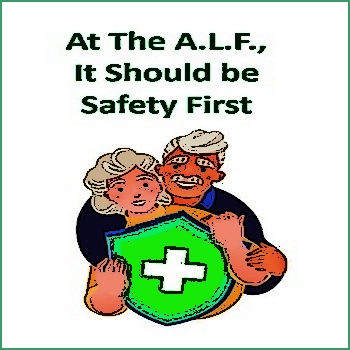
This is another in our series of what to look for if you, or a loved one, are considering a move to an Assisted living Facility.
Selecting an A.L.F. for a loved one is a major life step. As with everything, you usually get what you pay for. Some spots cost eight thousand dollars a month or more and feel like a resort. They serve fine food and offer many daily events. These perks are nice, but they are not the main goal. Fancy rooms do not matter if the home is not safe. Safety for residents and staff must be the first thing you check.
Continue reading >>
↓
IN CASE YOU MISSED IT
US prostate cancer rates
rose annually over the
past decade, new report finds

By Dr. Raihan El-Naas
Read more
>>>>><<<<<
Cardiologists
Are Begging
You To Eat More of This
High-Fiber Food
if You're Over 60
By Korin Miller

Read more
>>>>><<<<<
GM Patents a Technology
That Would Tell Older Drivers
When to Give up the Car Keys
By Sean Tucker

Read More
<><><><><>
Why Are More
Older People Dying
After Falls?

Read more
>>>>><<<<<
Study:
More than half
of older adults
lose independence
after emergency surgery
By Donna Shryer

Read more
↓

Stats about Iran:
- Iran has an estimated population of around 85 million people, making it the 18th most populous country in the world.- Iran covers approximately 1.65 million square kilometers, making it the 17th largest country globally.- Iran's GDP is roughly $220 billion USD (nominal), with significant oil and gas reserves contributing to its economy.- The official language is Persian (Farsi), spoken by about 80% of the population.- The majority of Iranians are Shia Muslims, comprising approximately 90-95% of the population.↓
MONDAY, MARCH 2, 2026


KEY NEWS FOR YOU TO USE
What Older Voters
Need to Know About
the SAVE America Act
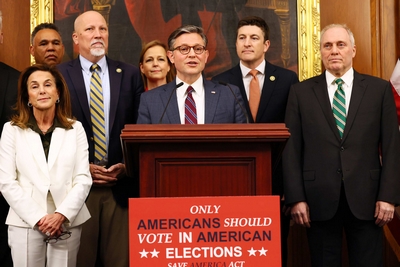
By Miriam Cross
Proposed legislation would require Americans to show proof of citizenship when registering to vote—documents many don’t have
"I don’t know how to make new friends at my age." "I feel isolated in my home." "I’m worried that I will lose all my work friends when I retire."
Every Thursday, a crew known as the Third Act shows up to build homes with Twin Cities Habitat for Humanity. Most of the men are retired — former corporate executives, engineers, sales managers
Enjoying retirement doesn’t always mean a luxurious lifestyle. In many cases, it’s the small, everyday comforts that have the biggest impact on quality of life.
Look for a card where the rewards align with your life. Once you’ve decided what rewards you want, consider the interest rate, annual fee, and types of purchases that earn extra points.
↓
Quote_____________________
"Leaving America
is like losing twenty pounds
and finding a new girlfriend."
Phil Ochs
_________________________
↓


As the world crumbles,
I’m at peace within
I’m not immune to what’s going on in our nation and the world. However, while things might be going to hell out there, I’m oddly at peace with myself and my life.
↓
IN CASE YOU MISSED IT
Why Is Everything Spicy Now?
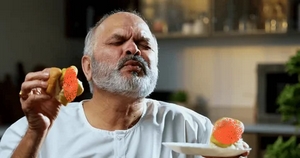
By Ellen Cushing
Read more
>>>>>><<<<<
Older Adults
Who Eat Breakfast Early
Live Longer,
Study Suggests

Read more
>>>>><<<<<
Cannabis Use
Is Booming in
Older Adults:
Are We Ready?

By Haley V. Solomon, DO,
Aaron Greenstein, MD
Read more
<<<<<>>>>>
Why the flu
turns deadly
for older adults,
and how scientists
found the cause

Read more
<><><><><>
How to Fight Back
Against Age Discrimination

By Tamara Lytle
Read more
↓

Americans are ditching
America in droves
Americans left the US in record numbers last year. At least 180,000 moved abroad in 2025. This marked the first time since 1935 that departures topped arrivals. Now, 4 to 9 million Americans live overseas. Their numbers keep rising. Portugal saw its US crowd jump from under 5,000 in 2020 to 26,000 by 2025. Moves to Ireland doubled to 9,600. US bids for UK passports hit a peak of nearly 9,000, up 42%. Folks chase cheap living on US paychecks. They like long Euro lunches and strong safety nets. Some flee US politics too. Twice as many adults now dream of permanent moves abroad—20% in all. Four in ten young women aged 15 to 44 want out.↓

↓
Next edition
WDNESDAY, MARCH 4 , 2026
©2026 Bruce Cooper
-30-
Comments
↓ ↓ ↓


